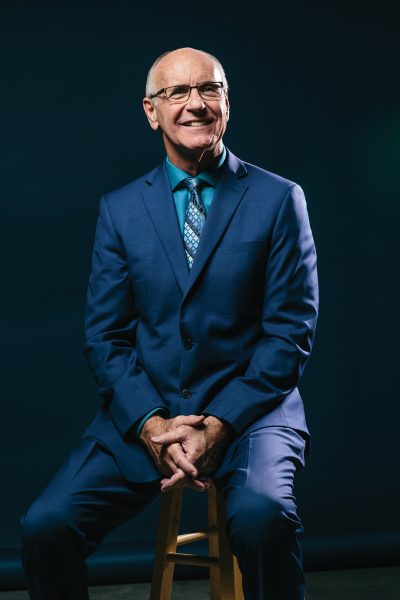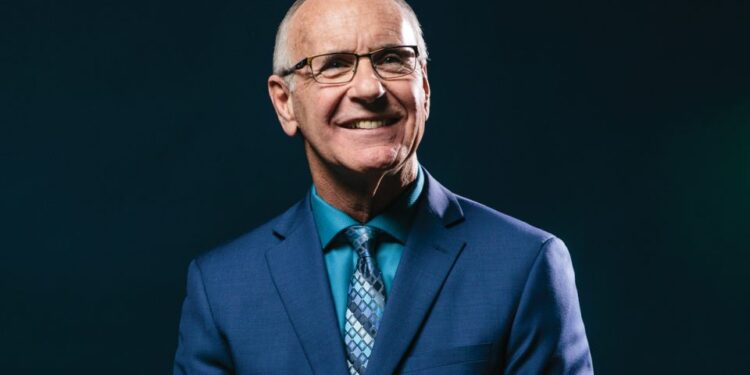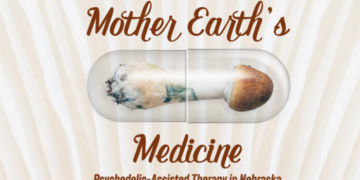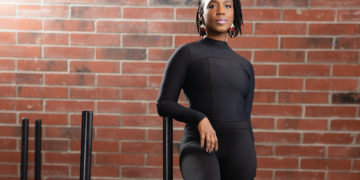Memory-makers.
That’s what former Husker gridiron great Jerry Murtaugh calls the ex-collegiate athletes whose exploits we recall with larger-than-life nostalgia.
Mythic-like hero portrayals aside, athletes are only human. Their bodies betray them. Medical interventions and other emergencies drain resources. Not every old athlete can pay pressing bills or afford needed care. That’s where the Nebraska Greats Foundation that Murtaugh began five years ago comes in. The charitable organization assists memory-makers who lettered in a sport at any of Nebraska’s 15 universities or colleges.
“All the money we generate goes into helping the memory-makers and their families,” Murtaugh says.
Its genesis goes back to Murtaugh missing a chance to help ailing ex-Husker star Andra Franklin, who died in 2006. When he learned another former NU standout, Dave Humm, was hurting, he made it his mission to help. Murtaugh got Husker coaching legend Tom Osborne to endorse the effort and write the first check.
“The foundation has been a source of financial aid to many former Huskers who are in need, but also, and maybe equally important, it has helped bind former players together in an effort to stay in touch and to serve each other,” Osborne says. “I sense a feeling of camaraderie and caring among our former players not present in many other athletic programs around the country.”
The foundation has since expanded its reach to letter-winners from all Nebraska higher ed institutions.
By the start of 2018, more than $270,000 raised by the foundation went to cover the needs of 12 recipients. Three recipients subsequently died from cancer. As needed, the foundation provides for the surviving spouse and children of memory-makers.
The latest and youngest grantee is also the first female recipient—Brianna Perez. The former York College All-America softball player required surgery for a knee injury suffered playing ball. Between surgery, flying to California to see her ill mother, graduate school, and unforeseen expenses, Perez went into debt.
“She found out about us, we reviewed her application, and her bills were paid off,” Nebraska Greats Foundation Administrator Margie Smith says. “She cried and so did I.”
It’s hard for proud ex-athletes to accept or ask for help, says all-time Husker hoops great Maurtice Ivy, who serves on the board. Yet they find themselves in vulnerable straits that can befall anyone. Giving back to those who gave so much, she says, “is a no-brainer.”
The hard times that visit these greats are heartbreaking. Some end up in wheelchairs, others homeless. Some die and leave family behind.
“I cry behind closed doors,” Murtaugh says. “One of the great ones we lost, a couple weeks before he passed away said, ‘All I’m asking is take care of my family.’ So, we’re doing our best. What I’m proud of is, we don’t leave them hanging. Our athlete, our brother, our sister has died, and we just don’t stop there—we clear up all the medical bills the family faces. We’re there for them.”
“We become advocates, cheerleaders, and sounding boards for them and their families,” Smith says. “I am excited when I write checks to pay their bills, thrilled when they make a full recovery, and cry when they pass away. But we’re helping our memory-makers through their time of need. Isn’t this what life is all about?”
Smith says the foundation pays forward what the athletes provided fans in terms of feelings and memories.
“We all want to belong to something good,” she says. “That is why the state’s collegiate sports programs are so successful. We cheer our beloved athletes to do their best to make us feel good. We brag about the wins, cry over the losses. The outcome affects us because we feel a sense of belonging. These recipients gave their all for us. They served as role models. Now it’s our turn to take care of them.”
Murtaugh is sure it’s an idea whose time has come.
“Right now, I think we’re the only state that helps our former athletes,” he says. “Before I’m dead, I’m hoping every state picks up on this and helps their own because the NCAA isn’t going to help you after you’re done. We know that. And that’s what we’re here for—we need to help our own. And that’s what we’re doing.”
Funds raised go directly to creditors, not recipients.
He says two prominent athletic figures with ties to the University of Nebraska—Barry Alvarez, who played football at NU and coached Wisconsin, where he’s athletic director, and Craig Bohl, who played and coached at NU’s football program, led North Dakota State to three national titles, and now coaches Wyoming—wish to start similar foundations.
Murtaugh and his board, comprised mostly of ex-athletes like himself, are actively getting the word out across the state and beyond to identify more potential recipients and raise funds to support them. He’s confident of the response.
“We’re going to have the money to help all the former athletes in the state who need our help,” he says. “Athletes and fans are starting to really understand the impact they all make for these recipients. People have stepped up and donated a lot of money. A lot of people have done a lot of things for us. But we need more recipients. We have some money in the bank that needs to be used.”
Because Nebraska collegiate fan bases extend statewide and nationally, Murtaugh travels to alumni and booster groups to present the foundation’s work. Everywhere he goes, he says, people get behind it.
“Nebraskans are the greatest fans in the country and they back their athletes in all 15 colleges and universities,” he says. “It’s great to see. I’m proud to be part of this, I really am.”
Foundation fundraisers unite the state around a shared passion. A golf classic in North Platte last year featured the three Husker Heisman Trophy winners—Johnny Rodgers, Mike Rozier, and Eric Crouch—for an event that raised $40,000. Another golf outing is planned for July in Kearney that will once more feature the Heisman trio.
Murtaugh envisions future events across the state so fans can rub shoulders with living legends and help memory-makers with their needs.
He sees it as one big “family” coming together “to help our own.”
Visit nebraskagreatsfoundation.org for more information.
r
This article was printed in the March/April 2018 edition of Omaha Magazine.













